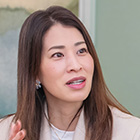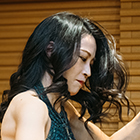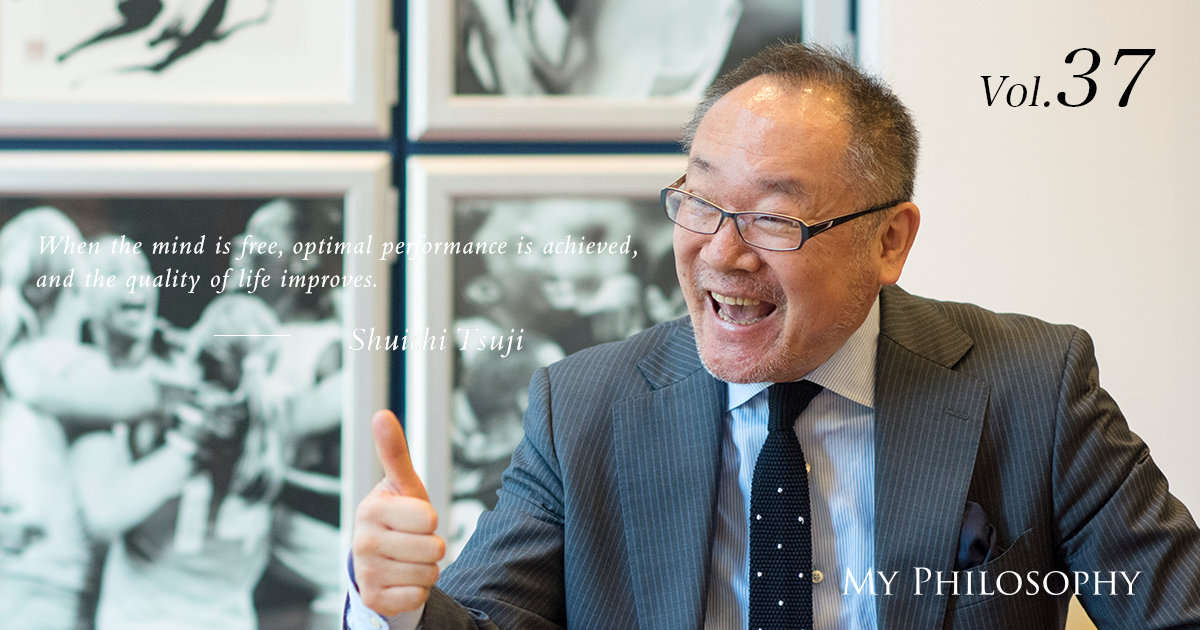
The "Tsuji Method" of mental training, which is utilized not only in sports but also in the fields of business and music, is likely to resonate with many people. Its developer, Dr. Shuichi Tsuji, has a philosophy of life that many find inspiring.
Profile
Vol.37 Shuichi Tsuji
Sports Doctor | CEO of Eminecross Co., Ltd.
Dr. Shuichi Tsuji was born in Tokyo in 1961 and graduated from the Hokkaido University School of Medicine. He completed his internal medicine training at Keio University Hospital. Instead of merely treating diseases, he aimed to explore the true meaning of living, focusing on supporting individuals to live authentically and richly, thereby enhancing their quality of life (QOL). Drawing from his 12 years of experience playing basketball, he realized that sports could provide insights into this endeavor and subsequently studied sports medicine at the Keio University Sports Medical Research Center. In 1999, he established the Eminecross Medical Center (now Eminecross Co., Ltd.) as a practical venue for QOL improvement activities. Based on applied sports psychology, which adapts sports psychology principles to everyday life and business, Dr. Tsuji developed his unique "Tsuji Method" to create a mental state of "Flow" that optimizes and maximizes performance. This practical method is utilized not only in the sports world but also in business, education, and music.
His publications include "Slam Dunk Victory Theory (Slam Dunk Syori gaku)" (Shueisha International), "Zen Brain Thinking (Zen Nou Shiko)" (Forest Publishing), "How to Create an Unshakeable Self (Issho Burenai Jibun no Tsukuri kata)" (Daiwa Shuppan), among many others.
*Titles and affiliations are as of the interview date (June 2015).
Sports as Culture
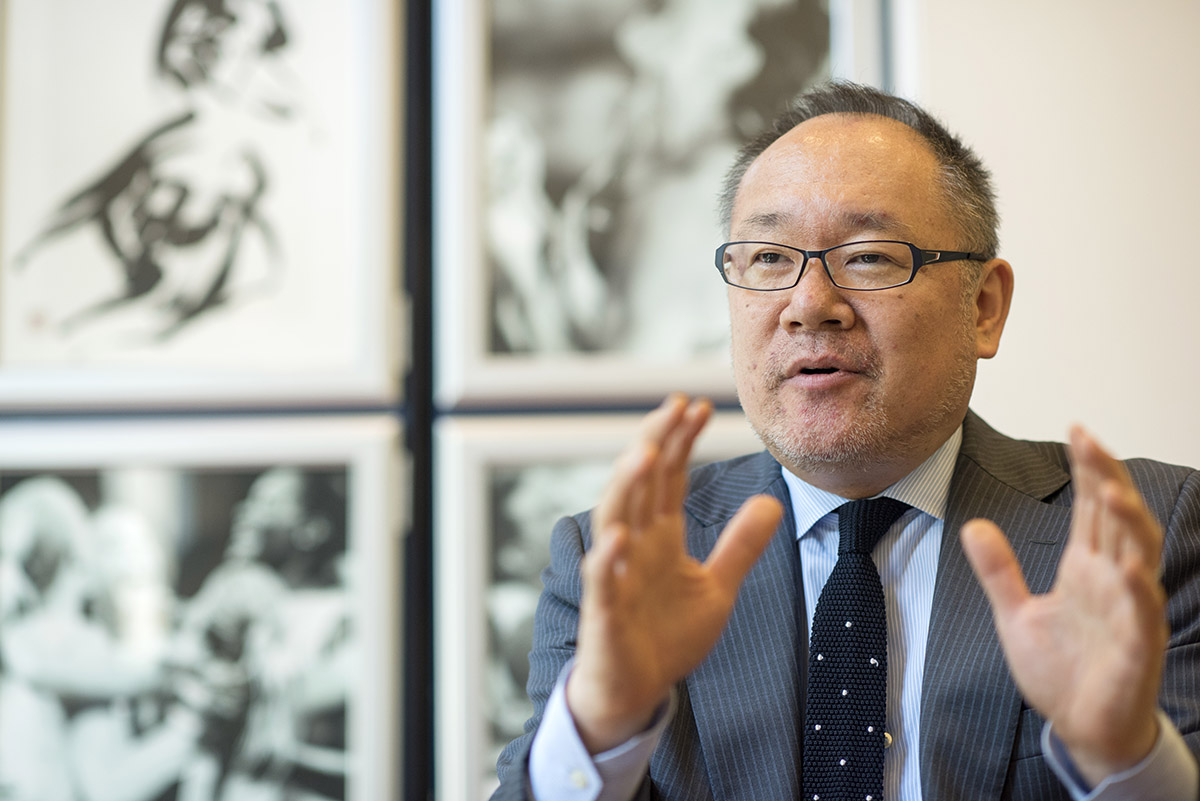 As a sports doctor, I want to convey to the world that “sports are culture.” Unfortunately, in Japan, sports are often seen only in the narrow sense of physical education, focusing solely on winning or losing, or on skill level. In essence, culture encompasses sports, art, and music. All activities that enrich the human spirit constitute culture. When we examine many books on sports culture around the world, we find that the cultural value of sports encompasses four key elements: medical, artistic, communicative, and educational aspects. Without these four elements, humans cannot live truly human lives. The medical aspect of sports brings vitality, the artistic aspect brings inspiration, the communicative aspect brings camaraderie, and the educational aspect fosters growth. It is unfortunate that Japan does not recognize sports as culture, especially with the Tokyo Olympics approaching in 2020. One of my missions and aspirations is to transform Japan into a nation that acknowledges sports as culture by that time.
With this belief, in 2012, I invested all my passion into creating the professional basketball team “Tokyo Excellence.” I hoped that by promoting the idea that “sports are culture” through a professional team, we might spark a new movement. When I had the opportunity to express this sentiment in the Tokyo Shimbun newspaper, I received a call from the mayor of Itabashi Ward, who read the article and said, “Our ward wants to value sports as culture, so we would like to offer to be the hometown of Tokyo Excellence.” This kind of response strengthens my belief that if we continue to meet various people, share our philosophy, and keep sending out this message, the perception of sports in Japan will change.
As a sports doctor, I want to convey to the world that “sports are culture.” Unfortunately, in Japan, sports are often seen only in the narrow sense of physical education, focusing solely on winning or losing, or on skill level. In essence, culture encompasses sports, art, and music. All activities that enrich the human spirit constitute culture. When we examine many books on sports culture around the world, we find that the cultural value of sports encompasses four key elements: medical, artistic, communicative, and educational aspects. Without these four elements, humans cannot live truly human lives. The medical aspect of sports brings vitality, the artistic aspect brings inspiration, the communicative aspect brings camaraderie, and the educational aspect fosters growth. It is unfortunate that Japan does not recognize sports as culture, especially with the Tokyo Olympics approaching in 2020. One of my missions and aspirations is to transform Japan into a nation that acknowledges sports as culture by that time.
With this belief, in 2012, I invested all my passion into creating the professional basketball team “Tokyo Excellence.” I hoped that by promoting the idea that “sports are culture” through a professional team, we might spark a new movement. When I had the opportunity to express this sentiment in the Tokyo Shimbun newspaper, I received a call from the mayor of Itabashi Ward, who read the article and said, “Our ward wants to value sports as culture, so we would like to offer to be the hometown of Tokyo Excellence.” This kind of response strengthens my belief that if we continue to meet various people, share our philosophy, and keep sending out this message, the perception of sports in Japan will change.
A Brush with Death
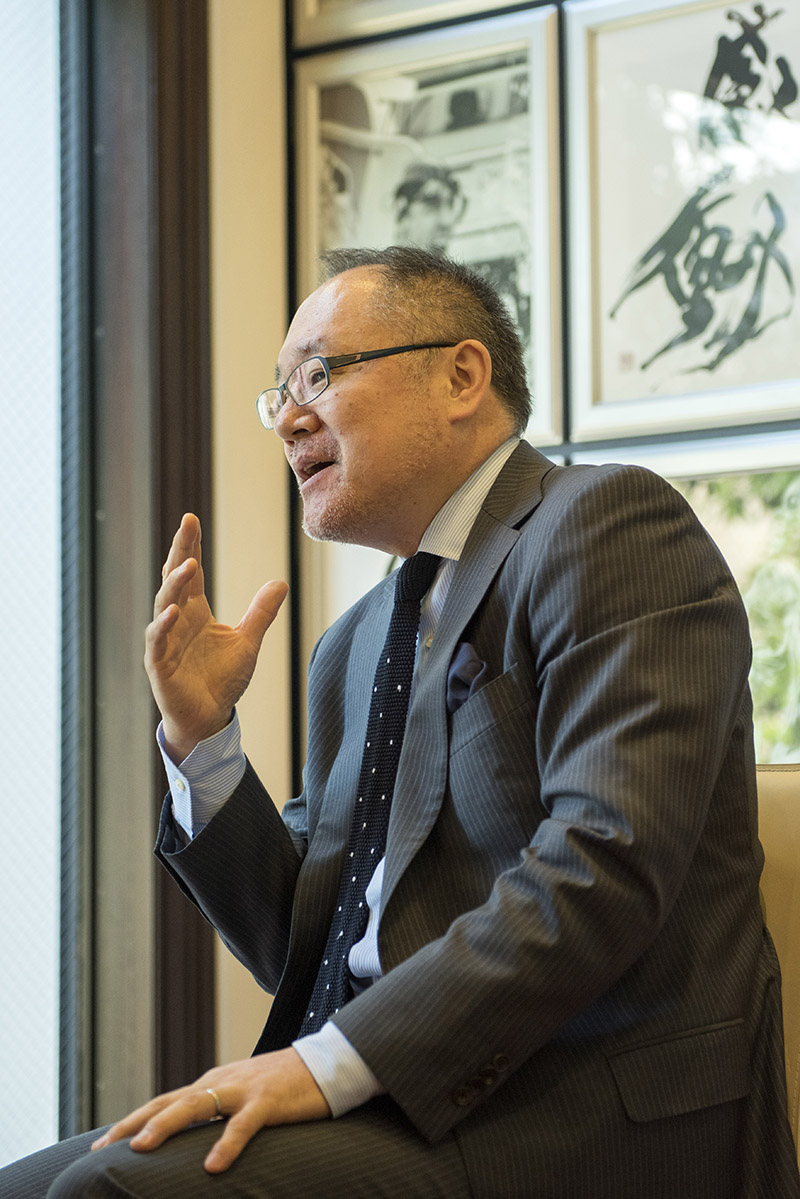 In 2005, my family and I traveled to Maui, Hawaii. The morning after our arrival, while swimming at the hotel’s private beach, I was suddenly hit by a large wave. It felt as though a giant had grabbed my legs and slammed me into the ground. The force of the wave caused me to flip over, hitting my head on the seabed, resulting in a brain concussion and loss of consciousness. Although I regained consciousness within a few seconds, I was completely paralyzed from the neck down, unable to stand, speak, or even breathe. Just before losing consciousness again and sinking, I somehow managed to shout “Help!” Fortunately, a hotel front desk employee, who happened to be the only other person swimming at the time, heard my cry and spotted me sinking. He pulled me up from the ocean floor.
During the time I was unconscious, I saw a light. The light was calling to me, but I felt as if my daughters were calling me back. At that moment, the front desk employee’s resuscitation efforts brought me back to consciousness, saving my life.
At the hospital, tests revealed that my seventh cervical vertebra was fractured. To prevent spinal cord damage from inflammation, I was given a large dose of steroids. High doses of steroids can cause various side effects such as confusion, high blood pressure, and diabetes. Apparently, I was in a state of confusion all night, but by noon the next day, I had calmed down. Gradually, I regained sensation and movement starting from my fingertips, and by evening, my entire body had recovered its sensory and motor functions. After three days of rehabilitation, I was discharged from the hospital. I flew back home in a cast.
This close encounter with death made me reflect on the value of life and the importance of quality of life.
In 2005, my family and I traveled to Maui, Hawaii. The morning after our arrival, while swimming at the hotel’s private beach, I was suddenly hit by a large wave. It felt as though a giant had grabbed my legs and slammed me into the ground. The force of the wave caused me to flip over, hitting my head on the seabed, resulting in a brain concussion and loss of consciousness. Although I regained consciousness within a few seconds, I was completely paralyzed from the neck down, unable to stand, speak, or even breathe. Just before losing consciousness again and sinking, I somehow managed to shout “Help!” Fortunately, a hotel front desk employee, who happened to be the only other person swimming at the time, heard my cry and spotted me sinking. He pulled me up from the ocean floor.
During the time I was unconscious, I saw a light. The light was calling to me, but I felt as if my daughters were calling me back. At that moment, the front desk employee’s resuscitation efforts brought me back to consciousness, saving my life.
At the hospital, tests revealed that my seventh cervical vertebra was fractured. To prevent spinal cord damage from inflammation, I was given a large dose of steroids. High doses of steroids can cause various side effects such as confusion, high blood pressure, and diabetes. Apparently, I was in a state of confusion all night, but by noon the next day, I had calmed down. Gradually, I regained sensation and movement starting from my fingertips, and by evening, my entire body had recovered its sensory and motor functions. After three days of rehabilitation, I was discharged from the hospital. I flew back home in a cast.
This close encounter with death made me reflect on the value of life and the importance of quality of life.
Living Each Irreplaceable Moment to the Fullest
I believe that every moment is an edge because each moment is irreplaceable. Recognizing that this moment will never come again liberates the mind and fosters growth. While tomorrow certainly exists, the hope of tomorrow and the uniqueness of the present moment are different concepts. When we are young, we think we have endless time. Time does continue, but if we are always aware that the present moment is irreplaceable, we will live in a way that values the present. Everyone has attachments to the past, but letting go of the past and cherishing the present liberates the mind, enhances performance, and leads to positive outcomes. There is a follow-up to my near-death experience in Hawaii. When my lifesaver, the hotel front desk employee, came to Japan to visit me after my recovery, he told me an interesting story. He is a fourth-generation Japanese-American who once taught English for a year in Gamo District, Shiga Prefecture. Coincidentally, I am the 14th generation of the Tsuji family, who served as clan physicians in Gamo District, Shiga Prefecture, and our family registry is in Gamo District. It was a miraculous connection. Although I am not particularly spiritual, I believe that souls exist and that everyone has a mission to polish their soul during their lifetime. This mission is not limited to one generation; rather, we live with the souls that our ancestors have polished over generations. I have a vague sense of this belief.
There is a follow-up to my near-death experience in Hawaii. When my lifesaver, the hotel front desk employee, came to Japan to visit me after my recovery, he told me an interesting story. He is a fourth-generation Japanese-American who once taught English for a year in Gamo District, Shiga Prefecture. Coincidentally, I am the 14th generation of the Tsuji family, who served as clan physicians in Gamo District, Shiga Prefecture, and our family registry is in Gamo District. It was a miraculous connection. Although I am not particularly spiritual, I believe that souls exist and that everyone has a mission to polish their soul during their lifetime. This mission is not limited to one generation; rather, we live with the souls that our ancestors have polished over generations. I have a vague sense of this belief.
Japan Gokigen Project
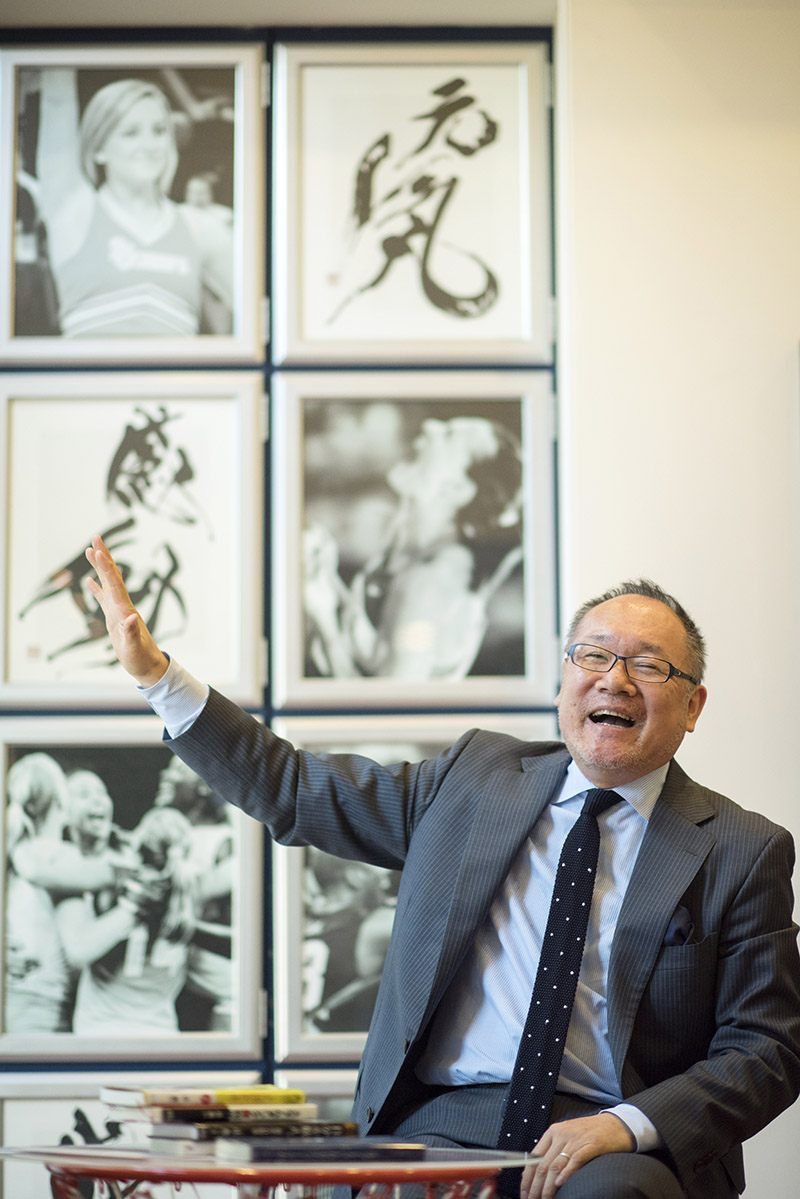 “Every person is an artist, and every job is a work of art.” This realization came to me at Blue Note while listening to jazz. I was paying for the wonderful time and comfort created by the music performed by the musicians, who are artists. In other words, I was paying for the creation of a pleasant time and space through music. In that moment, I suddenly thought that the person cleaning the restroom is also an artist, creating a pleasant space. This perspective led me to believe that everyone brings joy to someone by simply being born. The birth of every life is connected to joy, making life itself a form of art. Every person, as an artist, lives for the joy, quality of life (QOL), and happiness of others. Therefore, it is essential to think about what is needed to create better work, which I see as art, and to continuously refine oneself for the joy of others.
“Every person is an artist, and every job is a work of art.” This realization came to me at Blue Note while listening to jazz. I was paying for the wonderful time and comfort created by the music performed by the musicians, who are artists. In other words, I was paying for the creation of a pleasant time and space through music. In that moment, I suddenly thought that the person cleaning the restroom is also an artist, creating a pleasant space. This perspective led me to believe that everyone brings joy to someone by simply being born. The birth of every life is connected to joy, making life itself a form of art. Every person, as an artist, lives for the joy, quality of life (QOL), and happiness of others. Therefore, it is essential to think about what is needed to create better work, which I see as art, and to continuously refine oneself for the joy of others.
Living each moment of life with care is what defines an artist and a professional. There are 86,400 seconds in a day. Understanding the importance of living each moment to the fullest makes everyone shine more brightly. It is a waste to live life complaining. Instead of regretting the past, let’s start by focusing on living in the present. Our thoughts shape us, so beginning with the intention to always give our best effort will gradually change our state of mind. We create our own lives and our own minds. Anyone can use their brain in this way. I call this natural, authentic state of mind “gokigen” (happiness). My aim is for everyone to create their own gokigen and live cheerfully. A bad mood stems from being shaken or trapped by something. Being constantly in a state of gokigen enhances QOL. My other mission is to convey to many people how to create a happy mind using applied sports psychology.
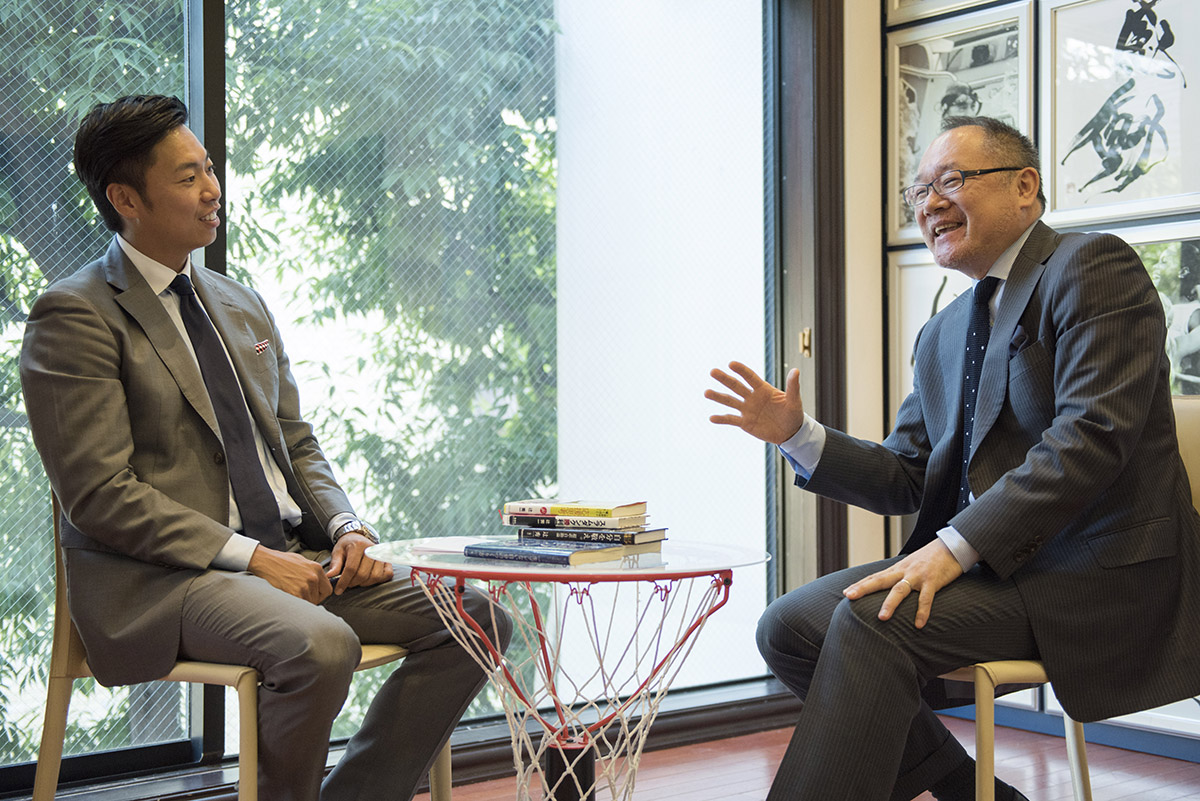
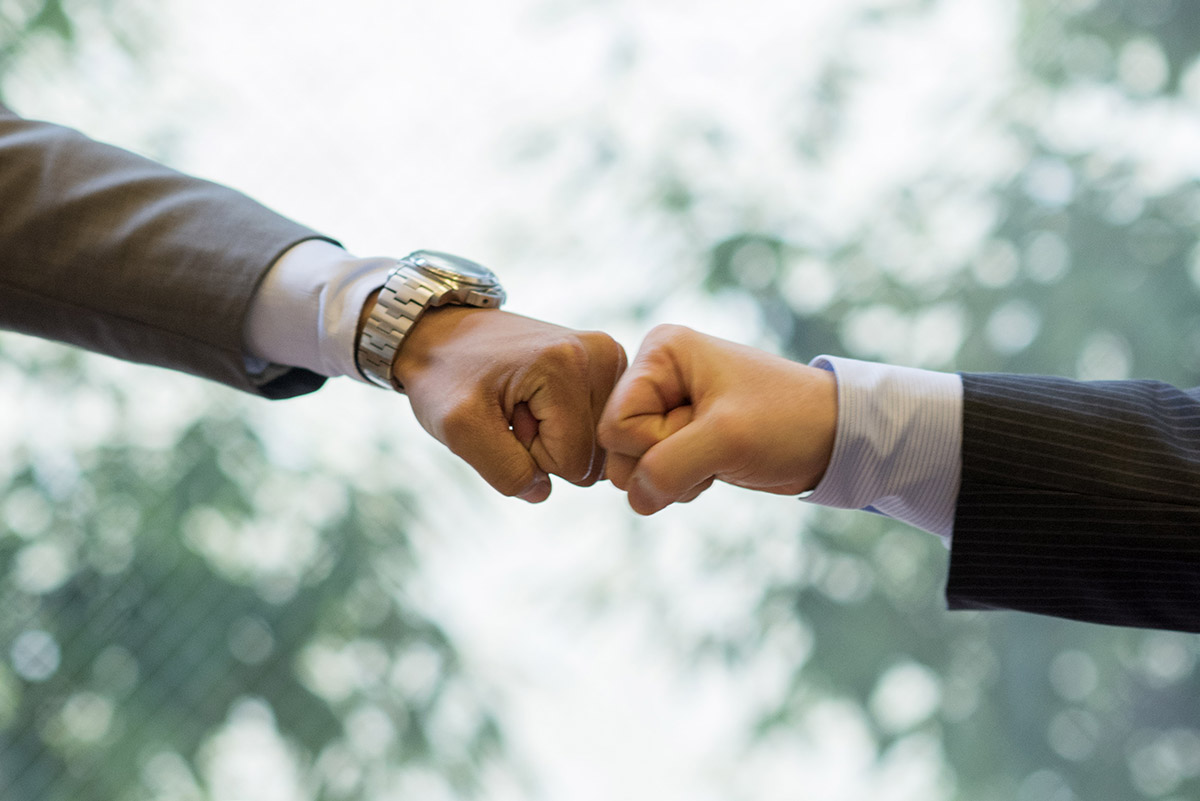
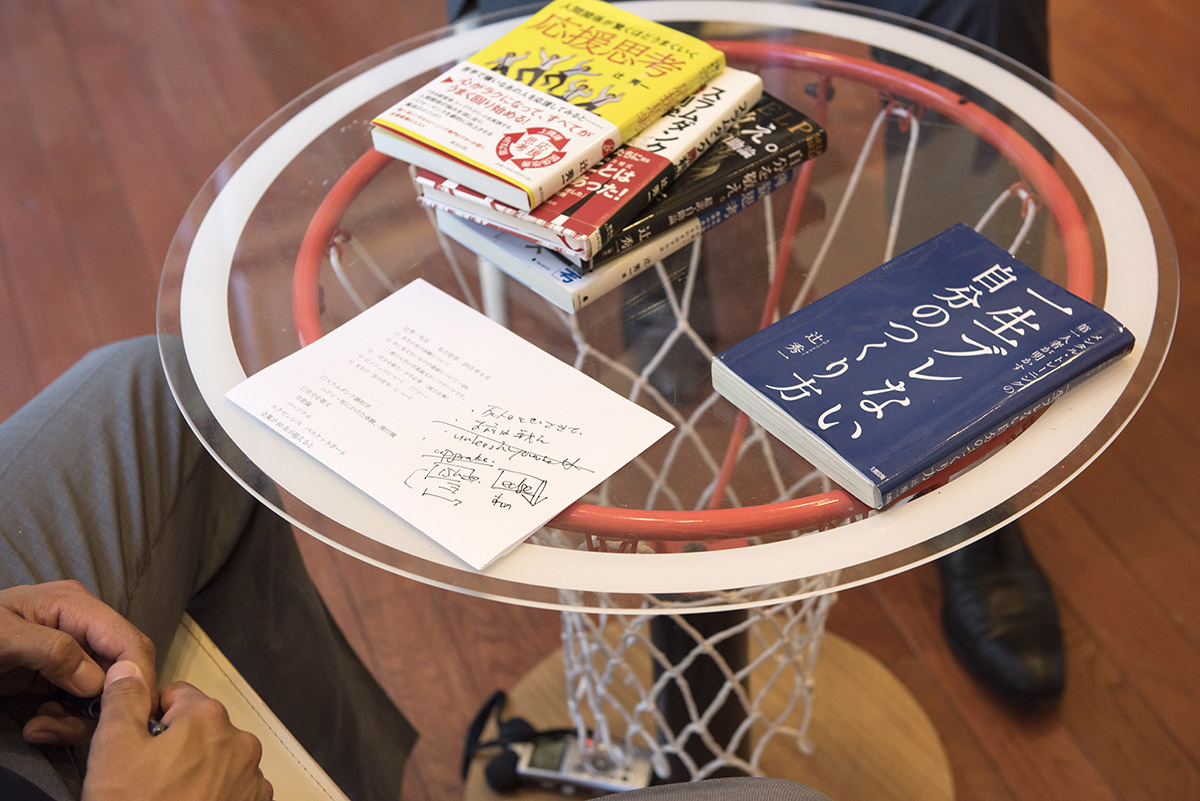
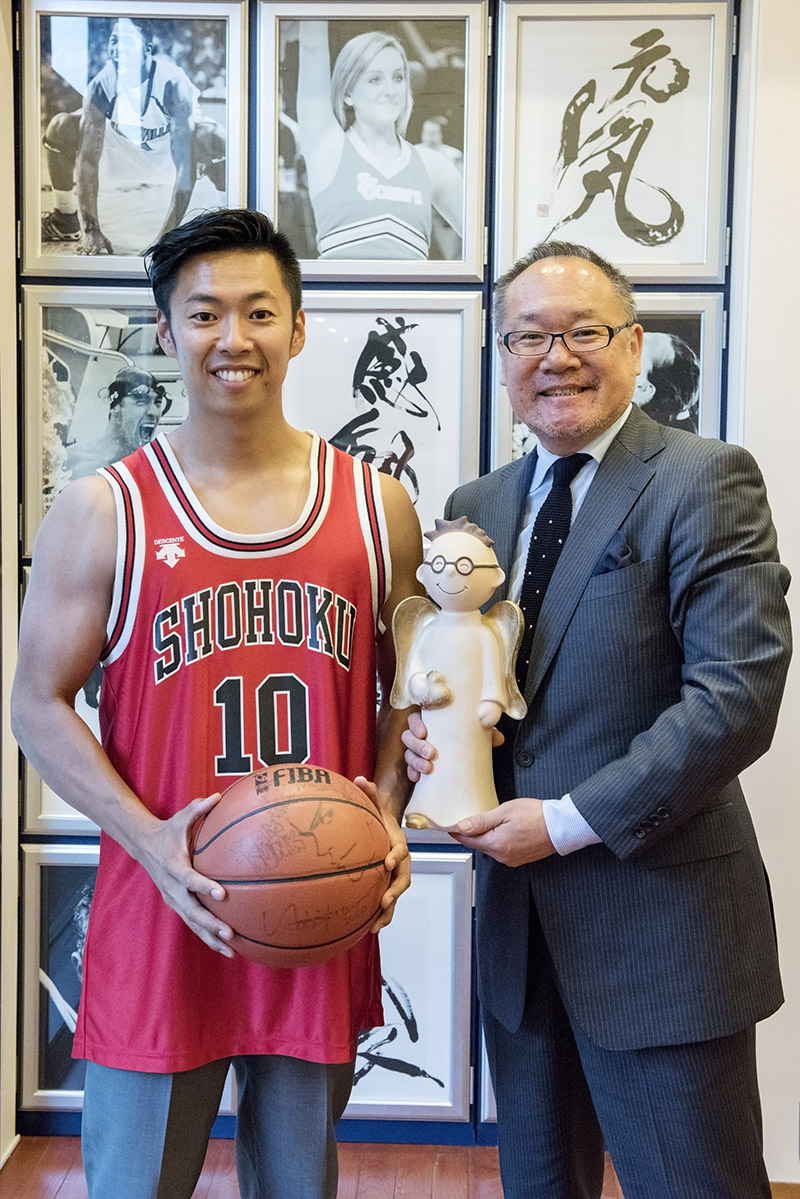
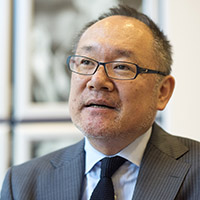 It was an extremely enjoyable time. Thank you from the bottom of my heart. I felt a close connection simply because we shared many common aspects regarding our way of life, thinking, and human resources. Meeting in person and having our conversation made me feel even closer, creating a fantastic space. The messages regarding our approach and mindset resonated like waves, making our dialogue powerful, and this was thanks to you, Mr. Sugiyama. I felt that young people like you have the power to change the world in the coming era. I also felt inspired to do my best, albeit in a small way, to contribute to making Japan a wonderful and energetic place. And most importantly, our shared love for kendo and basketball! That was the best part. Thank you very much.
It was an extremely enjoyable time. Thank you from the bottom of my heart. I felt a close connection simply because we shared many common aspects regarding our way of life, thinking, and human resources. Meeting in person and having our conversation made me feel even closer, creating a fantastic space. The messages regarding our approach and mindset resonated like waves, making our dialogue powerful, and this was thanks to you, Mr. Sugiyama. I felt that young people like you have the power to change the world in the coming era. I also felt inspired to do my best, albeit in a small way, to contribute to making Japan a wonderful and energetic place. And most importantly, our shared love for kendo and basketball! That was the best part. Thank you very much.
Sports Doctor Shuichi Tsuji
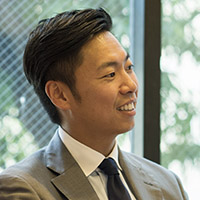
June 2015,Eminecross Co., Ltd.Translated by ILI Inc.





